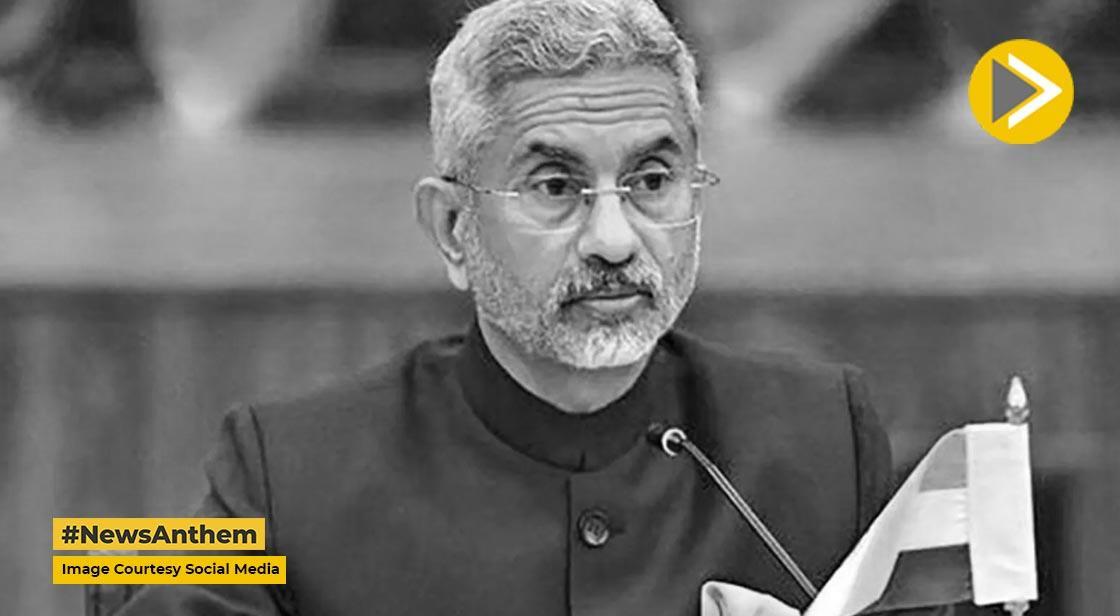Global South must unite for climate justice, tech innovation and economic reforms: Jaishankar

Podcast
News Synopsis
External Affairs Minister S. Jaishankar on Tuesday chaired a High-Level Meeting of Like-Minded Global South Countries in New York, held on the sidelines of the 80th session of the United Nations General Assembly (UNGA80). The meeting brought together representatives of developing nations to discuss ways to boost solidarity, cooperation, and multilateral engagement in addressing shared global challenges.
The agenda was shaped around pressing issues such as climate justice, digital technology, economic reforms, and multilateralism, while also underlining the need for a stronger Global South voice in shaping the global order.
India Leads Dialogue on South-South Cooperation
In his opening remarks, External Affairs Minister S. Jaishankar highlighted the importance of multilateralism in managing crises faced by developing nations.
“Delighted to host the High-Level Meeting of Like-Minded Global South Countries in New York today on the sidelines of UNGA80. In the face of the proliferation of concerns and the multiplicity of risks, it is natural that the Global South turn to multilateralism for solutions,” he said in a post on X.
He further stressed that developing nations must leverage existing platforms to share knowledge and achievements.
“Utilise existing forums to strengthen consultations among the Global South with a view to enhancing solidarity and encouraging collaboration. Bring to the table specific strengths, experiences, and achievements we may have developed that can benefit fellow nations in the Global South. Vaccines, digital capabilities, education capacities, agro-practices and SME culture are good examples,” Jaishankar added.
Climate Justice and Technology for the Global South
Prioritising Developing Nations in Climate Action
Jaishankar called for climate action policies that put the Global South at the forefront rather than catering to the Global North.
“In areas like climate action and climate justice, come up with initiatives that serve the Global South rather than justify the global North. Discuss the promise of technologies on the horizon, especially AI, and reform the UN and multilateralism as a whole,” he said.
This aligns with India’s consistent push for climate equity, where developing nations seek financial and technological support to adapt to extreme climate events without compromising growth.
Leveraging Emerging Technologies
Highlighting the transformative potential of artificial intelligence (AI), digital public infrastructure, and new-age technologies, Jaishankar emphasised their role in inclusive growth and bridging development gaps across the Global South.
Challenges Confronting the Global South
The minister noted that developing nations today face a complex set of challenges:
-
Aftershocks of the COVID-19 pandemic.
-
Conflicts in Ukraine and Gaza impacting global stability.
-
Extreme climate events threatening agriculture and livelihoods.
-
Volatile trade flows and uncertain investment climate.
-
Rising interest rates affecting emerging markets.
“Most of all, the rights and expectations of developing countries in the international system, which have been so assiduously developed over many decades, are today under challenge,” Jaishankar warned.
He also flagged that international organisations are losing relevance due to resource shortages and lack of reforms.
“The very concept of multilateralism is under attack. International organizations are being rendered ineffective or starved of resources. The building blocks of the contemporary order are starting to come apart, and the cost of delaying much-needed reforms is starkly visible,” he cautioned.
Path Ahead: Trade, Technology, and Fair Economic Practices
Strengthening South-South Trade and Investment
Jaishankar urged nations to pursue fair and transparent economic practices, expand intra-South trade and investments, and develop shorter, resilient supply chains to reduce dependency on a single market or supplier.
“A stable environment for balanced and sustainable inter-economic interactions, including more south trade, investment and technology collaborations. Resilient, reliable, and shorter supply chains will reduce dependence on any single supplier or market,” he said.
Addressing Food, Energy, and Fertiliser Security
Jaishankar also highlighted the urgent need to resolve conflicts that disrupt food, fertiliser, and energy security, which disproportionately affect rural and low-income populations across developing countries.
India’s Role in Strengthening Global South
India has consistently positioned itself as a leading voice for the Global South, advocating reforms in UN institutions, climate justice, and equitable access to technology. Initiatives such as the Voice of the Global South Summit earlier this year further underline New Delhi’s proactive role in shaping the agenda for developing nations.
During the sidelines of UNGA80, Jaishankar also held bilateral discussions with foreign ministers including Singapore’s Vivian Balakrishnan, St. Lucia’s Alva Baptiste, Mauritius’ Ritish Ramful, and David van Weel of the Netherlands, underscoring India’s focus on building diplomatic bridges across geographies.
Conclusion
The High-Level Meeting of Like-Minded Global South Countries marked a significant step in collective action for developing nations. As S. Jaishankar highlighted, the Global South faces unprecedented challenges—from climate crises and geopolitical conflicts to economic volatility.
Yet, with stronger multilateralism, South-South collaboration, and technology-driven partnerships, these countries can secure their rightful place in global governance. India’s leadership, especially through its emphasis on climate justice, digital innovation, and equitable reforms, reaffirms its role as a key driver of the Global South’s agenda on the international stage.





